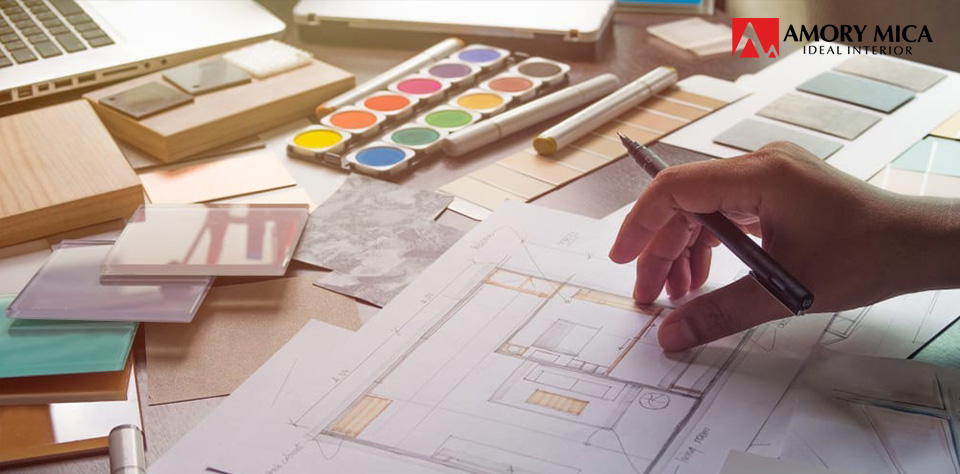Choosing the right interior designer is a crucial step in turning your design vision into a reality. Whether you’re renovating your home, designing a new space, or simply looking to refresh your interior, a talented and compatible interior designer can make all the difference. In this article, we will guide you through the process of finding the right interior designer for your project.
- Assess Your Needs and Goals:
Before embarking on your search for an interior designer, take some time to evaluate your needs and goals. What kind of project are you undertaking? Do you have a specific design style in mind? Determining your objectives will help you find a designer who specializes in your project type and style preferences.
- Set a Realistic Budget:
Establishing a budget is essential. Be clear about how much you’re willing to invest in your project, and communicate this budget to potential designers from the start. A good interior designer should be able to work within your financial constraints and help you get the most value for your money.
- Collect Inspiration:
Gather inspiration from magazines, websites, and social media platforms like Pinterest and Instagram. Creating a mood board or a visual collage of your design preferences can help you convey your ideas to potential designers and ensure you’re on the same page.
- Ask for Recommendations:
Seek recommendations from friends, family, or colleagues who have had positive experiences with interior designers. Personal referrals are often a reliable way to find a designer who understands your needs and has a track record of successful projects.
- Research Online:
The internet is a valuable resource for finding interior designers. Websites, social media profiles, and online portfolios can provide insight into a designer’s style, experience, and past work. Reading client reviews and testimonials can also be informative.
- Interview Multiple Designers:
Once you’ve identified a shortlist of potential designers, schedule interviews or consultations with them. This is your opportunity to discuss your project, ask questions, and gauge whether your personalities and visions align. Consider the following:
- Experience: Ask about the designer’s experience and past projects.
- Portfolio: Request to see their portfolio, paying attention to projects that align with your style.
- References: Request references from previous clients to hear about their experiences.
- Communication: Ensure that you can communicate effectively with the designer and that they are receptive to your ideas.
- Fees: Discuss the designer’s fees, payment structure, and any additional costs.
- Review Their Portfolio:
A designer’s portfolio is a reflection of their style and capabilities. Look for projects that resonate with your taste and requirements. Pay attention to the variety of projects and styles in their portfolio to ensure versatility.
- Check References:
Reach out to references provided by the designer to learn about their experiences. Ask about the design process, communication, adherence to budgets and timelines, and overall satisfaction with the results.
- Understand the Design Process:
In your consultations with potential designers, inquire about their design process. A clear and organized design process is a positive sign. It should involve an initial consultation, conceptual design, detailed planning, sourcing of materials and furnishings, project management, and final installation.
- Trust Your Instincts:
Ultimately, the right interior designer should not only have the qualifications and experience but also feel like the right fit for you. Trust your instincts; you should feel comfortable and confident in your choice.
- Agree on Clear Terms:
Once you’ve selected an interior designer, make sure to have a written agreement that outlines the scope of the project, the budget, the timeline, and any other relevant details. This will protect both you and the designer throughout the project.


